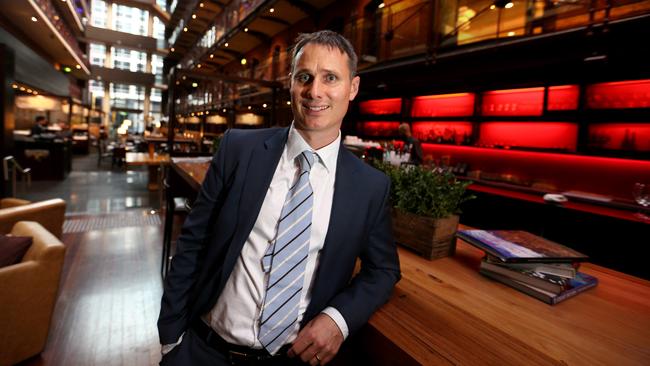Funds lash cautious directors, lawless auditors
An ‘incestuous’ community of directors is preventing boards from making hard decisions.

An “incestuous” community of directors is preventing boards from making hard decisions about the direction of companies and defamation laws are stopping shareholder activists from asserting their rights, says Bronte Capital founder John Hempton.
Mr Hempton also said there were “no standards” in the auditing industry, which is coming under increasing scrutiny by regulators and politicians.
Meanwhile, Simon Mawhinney, managing director of contrarian investor Allan Gray, said proxy advisers were “the antichrist”.
Speaking on a panel about shareholder activism at the Australian Securities & Investments Commission annual forum in Sydney yesterday, Jeremy Leibler, a partner in Arnold Bloch Leibler, said the pool of company directors in Australia was too small.
And Mr Leibler said companies engaged with shareholder activists too often.
“The issue in Australia is that directors and boards engage too much,’’ he said.
“One of the reasons, I believe, is the limited pool of non-executive directors in this country.
“It is very small. Everyone is interconnected. Everyone knows everyone.
“The result is that people’s reputations are extremely important to them to operate as a non-executive director. They don’t want to be targeted by activists. They don’t want to get a first or second strike. People say second strikes don’t matter: let me tell you, directors worry a lot.”
Mr Hempton, who helped blow the whistle on fraud at US pharmaceuticals group Valeant, said the problem with small pools of company directors was it fostered a mentality of “you scratch my back, I scratch your back”.
“It’s pretty obvious what’s wrong with incestuousness. Incestuousness means the compensation goes up,” he said.
He referred to Warren Buffett’s use of the phrase “ratchet, ratchet, bingo” for directors who sit on various remuneration committees that drive up one another’s salaries. He also said independent directors were too cautious to tell boards to change direction.
“There are directors in this market on four or five boards taking home $5 million. Do you really think they want to rock the boat,” he said.
“If you want to go activist in America you have no defamation laws, you have active proxy advisers and you don’t have to worry about pissing people off because it’s a big community.”
Mr Hempton said activism in Australia was “rare” because of the defamation laws.
He claimed credit for two-thirds of the outing of the fraud at Valeant Pharmaceuticals, which he began short selling for nearly three years since exposing alleged flaws in its accounting and mail-order pharmacy sales model.
The panel discussion also took in proxy adviser industry.
Mr Mawhinney said: “I think proxy advisers are the anti-christ.
“We don’t like them but we do subscribe to them. They occasionally are a font of wisdom. There would be more (proxy advisers) if you regulated them.”
Mr Liebler argued for more regulation of the proxy adviser sector. “Proxy advisers are very powerful. But they are unregulated,” Mr Leibler said.
“Some institutions will vote blindly with the accordance of proxy advisers.
“In many cases they are in breach of their fiduciary duties because they follow their proxy advisers blindly.
“It’s definitely improved over the last two years, but you can pick up these proxy adviser reports and you can find fundamental mistakes. I just want there to be a certain standard upheld.”
Mr Hempton said the auditing industry needed to face more stringent penalties.
He said the auditor who failed to spot missing assets in the Trio superannuation collapse received a “rap on the knuckles”
“The assets literally did not exist. The auditor did get an undertaking, but that’s as bad as it gets for an auditor here,” Mr Hempton said.
“There are no standards.”



To join the conversation, please log in. Don't have an account? Register
Join the conversation, you are commenting as Logout